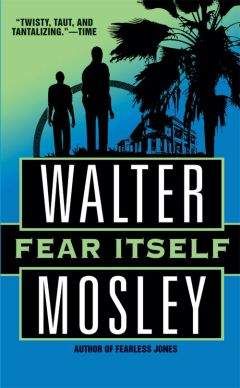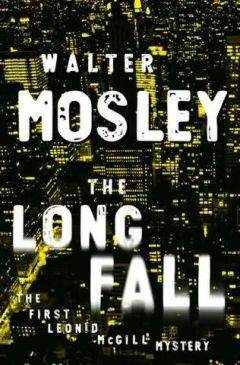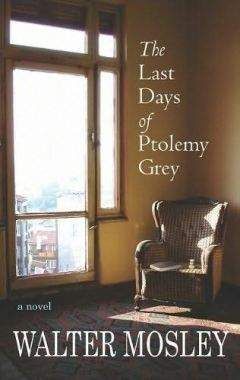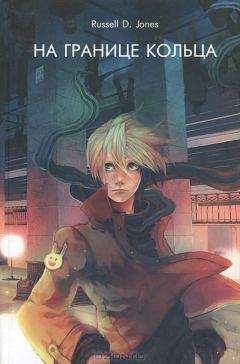Walter Mosley - Fearless Jones
“Are you sick?” I asked.
He raised a skeletal hand and waved me to his bedside.
I glanced at Fearless, who had stopped talking for a moment to look in the direction of the voices. He saw me and then turned back to continue his conversation with Sol.
“They’re trying to kill me,” the man said after I had moved to his bedside.
“Who is?”
“They all are. They bring me here and stick me with needles and make me take poisons and hope that I die. They aren’t going to operate,” he said indignantly. “I don’t have fever. Here, feel my forehead.”
He was cool as a cucumber, as my mother often said.
“See? I’m not hot or bleeding. Why would they leave me here without my things? Why would they leave me with all these sick people’s germs if they’re not trying to kill me?”
I had no answer. I once heard a sermon in my uncle’s church where the minister claimed that there was no Earth, only Hell and Heaven. Where we were was an upper level of Hell. And when we died, we either tumbled the rest of the way down the mountainside or rose on an angel’s wings. I wasn’t sure about the Heaven part, but life sure was feeling like Hell to me.
“Fearless knows,” the aged gray-headed man said. “Fearless knows.”
I wondered if Fearless had gotten us mixed up in yet another hopeless cause, but then I remembered the troubles we were in were of my doing.
I went to Fearless ready to ask if I had to carry that old man out on my back. But the words died in my throat when I peered over his shoulder.
Sol’s face was shrunken and blue. His teeth glistened between parted lips, and he wasn’t breathing. He hadn’t drawn a breath in some time.
But still Fearless babbled on.
“Fearless.”
No reply.
“Fearless!”
“What? What you want, Paris?”
“Who are you talkin’ to, man? He’s dead.”
“I know that. You think I don’t know a dead man?”
“Then who are you talking to?”
“His soul,” Fearless said. There was a hint of embarrassment in his voice.
“What?”
Fearless put up his hands to silence me. “My momma used to say, a long time ago when I was a boy, that when a man dies, his soul is lost at first ’cause he don’t know he’s dead. It wanders around and could be lost forever. But if he sees you and he knows who you are and he knows that you’re talkin’ to him, then he tries to answer back. But when you don’t answer, he knows that he must be a spirit. Your voice becomes the messenger, and he realizes what has happent an’ he knows to go for Heaven.”
Then, instead of getting up and talking to me about our business, he turned back to Sol and started muttering again. I sat in a chair far away from the tiny man and waited until my watch said eight-thirty, then I went to Fearless again.
“How long you plan to keep this up?” I asked.
“Momma said to do it till dawn.”
“Visitors’ hours end at nine, Fearless. We don’t want the nurse to see you hoverin’ over no corpse.”
Fearless hesitated, then he turned away from his divine mission. “I guess that’s enough. I think he must’a heard me.”
“Yeah,” I said. “Now let’s get the fuck outta here.”
“WHEN DID he die?’ I asked Fearless in the parking lot.
“I don’t know. I mean, he was dead when I got there.”
“And the nurse didn’t come in to see him?”
“No. He was dead,” Fearless assured me.
“But how could that be? Aren’t the nurses supposed to check?”
“How should I know?” Fearless said defensively. “Maybe they looked in and saw that he looked peaceful. I don’t know.”
“So he didn’t say nuthin’?” I asked.
“How he gonna say somethin’ if he’s dead, Paris?”
I had no reply, no question to follow up. I wanted Sol to be alive more than anything. He was the only one who really knew about the money everybody was after. And that was the only reason I was still looking for answers. At least with some cash, I could rent another bookstore. But now that he was dead, I knew that it was time to move on.
“You want to go down to Louisiana and visit my mother?” I asked.
“Sure,” Fearless said. “Right after I find who killed Sol and Fanny.”
“The trouble is too deep,” I said. “It’s time for us to split.”
“You go on, Paris. It’s my word on the line here.”
“Your word what? You didn’t promise to find out who killed them.”
“But I promised to protect Fanny, and I didn’t. I bet because she wasn’t comin’ here, that’s why Sol died.”
“Mr. Jones,” I said as a plea.
“You go on, man. You didn’t promise.”
“I was with you, wasn’t I? I got you here. Maybe I even think you’re right, but I’m scared, man, scared to death with all these men fightin’ and killin’.” The truth came out of me without my intention.
Fearless put his steely hand on my shoulder.
“You scared, but you ain’t no coward, Paris. Uh-uh. Matter’a fact, you a hero.”
“What?” I never knew Fearless to try and play anybody, much less me, his best friend.
“Yeah. Hero is just bein’ brave when there’s trouble. An’ bein’ brave means to face your fears and do it anyway. Shoot. You can’t call me a hero ’cause I ain’t scared’a nuthin’ on God’s blue Earth.”
He got me again. Shamed me into going in on something that I should have left alone.
“You go on home,” I said. “I’m’a go over and see Gella and the fool. I’ll be back later on.”
29
GELLA GREETED ME at the door looking over my shoulder for Fearless. He had that kind of effect on people; that’s why I never wanted him to meet my girlfriends before we were solid.
“He couldn’t come,” I said.
Gella smiled, realizing she had been rude. “Come in, Mr. Minton.”
The tiny house was neat and sweet smelling. I imagined that gawky Gella had spent the whole day cleaning, trying to wipe away the stigma of death.
I remembered that Sol was dead and wondered if she had been notified. I decided to leave it up to the hospital. It wasn’t my job to announce death, and anyway, I wouldn’t want any evidence that I was the first one to know. It struck me as strange that the nursing staff was unaware of Sol’s passing for so long. Being safe was still my motto, regardless of Fearless calling me a hero.
“Please have a seat, Mr. Minton.”
“Paris,” I said while lowering myself onto a brown leather chair.
From the outside the Greenspans’ house looked like a plaster castle painted a dull orange. But inside the layout was the same as Sol and Fanny’s house. One contractor must have built tract homes for miles. Back in my little parish in Louisiana every home was different. We were poor, but at least we were different, I thought. That’s how jealousy works sometimes.
I was jealous of the fine wood furnishings and the long, plush drapes that covered an entire wall. There was a grandfather clock with a brass pendulum that must have weighed half a pound and gold-brown carpeting so thick that you’d think you were standing on an ancient pine forest floor.
Her skinny neck had a gold chain on it, and the diamond of her engagement ring was no chip like the wedding stones you found around where I lived.
For a moment I felt sorry that I didn’t send Fearless. Why shouldn’t he be in that house and have that woman draped on him like that chain when her husband finally decided to come home? Why couldn’t he take her on the couch, and on the floor, while that sap of a husband gawked and whined?
I felt the beginnings of an erection as I sat there looking at that red-eyed, sorrowful young woman, but there was no love in my heart. Maybe it was the past few days of danger and mayhem that stripped away the bonds of my rage.
“Is something wrong?” Gella asked me in that slightly nasal voice.
She saw the rage and aggression in my eyes. That recognition doused my anger — and my ardor.
“It’s been a tough few days,” I said.
“Yes it has.”
Gella reached for a small, framed photograph that sat on the coffee table. She looked at it and then handed it over to me. It was a picture of Fanny in a fancy green dress. She was laughing very hard and leaning over to the side like she’d done with me and Fearless that first night. It was a very different picture from the ones in Fanny’s bedroom.
“Uncle Sol gave it to me before they arrested him,” she said. “When he gave it to me, he said, ‘Isn’t she beautiful?’”
“She was a wonderful woman.” I handed the frame back. Then I said, “What’s this about your husband?”
“It’s like I said on the phone.” Gella perched on the end of the matching brown sofa. “For a whole day he wouldn’t eat or talk. Then, when I was washing dishes, he got in his car and drove off.”
“Did he say anything before he left?”
Gella shook her head the way one does when faced with an impossible math problem. “He didn’t seem to know that I was there except once.”
“What happened then?”
“He sat up and looked at me.”
“Is that all?”
“It was in his eyes,” Gella said, her voice skating near grief. “He was begging me with his eyes. There were tears, and he tried to say something…”
“What did the police say?”
“What?”
“What did the police say about Fanny?”
“Oh,” Gella said. Maybe she had forgotten about the death of her aunt, maybe she wanted to forget. “They wanted to know if there was any trouble in the family. They asked where Morris was when Sol was attacked.”
“Where was he?” I asked.
“At work. He has a part-time night job working for a man named Minor.”
“Zev,” I said.
“Yes. Do you know him?”
“He came to Fanny’s right after we found her, you had already left for the hospital. Said he wanted to say hi.”
“That’s strange.”
“Why?”
“I didn’t think that they knew Mr. Minor. I’m sure they didn’t.”
“He said he knew them back in the old country, that him and Sol lived in the same town.”
“He never met Sol since Morris worked for him,” Gella said. “And Morris never told me that he was a landsman.”
“What does your husband do for this guy?” I asked.
“He’s learning to be an insurance agent.”
“What kinda insurance?”
“Art.”
“Say what?”
“Mr. Minor writes policies for expensive paintings and sculptures. It’s a very good business.” There was pride in her voice, pride for her smart husband and his good choices. “Morris is already making more money in his night job than he does at the bank.”
“You got somethin’ to drink?” I asked.
The Greenspan kitchen looked even more like Fanny’s, even the wallpaper was the same. The only difference was that where Fanny had mismatched dishes and cookware, Gella had copper pots and dishes all with the same deep blue floral pattern.
She poured me a shot of peach schnapps in a cute little crystal thimble. Gella didn’t understand drinking the way her auntie did. I was sitting in the alcove, her standing before me. I downed the shot and put the thimble down in plain view, hoping that she’d get the hint.
“Sol is dead,” she said.
“When?”
“They called just before you got here. He died in his bed. Heart attack.”
I remembered what the maternity nurse, Rya McKenzie, had said about heart attacks but kept my silence on the subject.
“What did we do to deserve this?” she asked.
I got up and put my arms around her. She was a little taller than I, but still she got her head on my shoulder. I realized what Fearless meant about being there for someone who needs it. It was a small lesson on a bad day, and I wondered if I would remember it later on.
We stood there breathing, sobbing, being silent in the embrace. I was thinking about what I had to do next to keep out of trouble and to help Fearless realize that we were in over our heads. I pulled half away from the clinch, still holding on to her upper arms.
“He have any friends?” I asked.
“Sol?”
“Morris.”
“Oh.” That was a more difficult question. “Morris never had many friends. He was too serious for the young people who came to shul. He was always nervous and shy about how big he was. He was all the time saying how people made fun of him.”
“You got somethin’ to eat in the icebox?” I asked about food because I didn’t want to hear any more about how her Sad Sack husband didn’t have any friends and because I didn’t want to run him down in front of probably the only person who ever loved him since his mother.
“Oh yes,” she said brightly.
There was leftover meat loaf and stuffed cabbage that Fanny had made for them four days before. That and a Cel-Ray soda from the Jewish market was my dinner.
“She was a great cook,” Gella said, trying not to cry over the food. “They were both wonderful. He saved my father and me from the Nazis. He was a great man who would die for what is right.”
She switched over from meat loaf to heroism in wartime so quickly that I almost missed the meaning of her words.
“Some people said that it was because my father was rich that Sol saved us. But all our money was stolen by a man named Zimmerman. Sol knew that.”
“Who’s Zimmerman?”
“A Jew who worked with the SS men that sought out and deported Jews. They knew that some Jews had hidden their jewelry and valuables from German banks because they didn’t want to be robbed by the Nazis. Zimmerman came to my father and offered him our freedom for Papa’s art collection. But my father found out that Zimmerman lied and ran with me. After the war my father was broken. He lived with Sol and Fanny until he died.”
There was nothing for me to say. Sol and Fanny were saints.
“There’s a man named Jonas,” Gella said after a while.
“Who’s he?”
“Simon,” she said. “I think that’s his first name. He’s one of Mo’s friends. He’s not Jewish and so…” She let her own ideas of race and separation hang in the air a moment.
“Would Morris go to see his friend if he was upset? Somebody to talk to and drink with?” I suggested, indicating my empty glass.
“I don’t know,” she said, shaking her head. “Maybe.”
“Did you call him and ask?”
“I don’t know his telephone number. Morris never writes numbers down, he has a perfect memory.” She was proud of him, and scared for him, but still she wouldn’t call this non-Jewish man.




